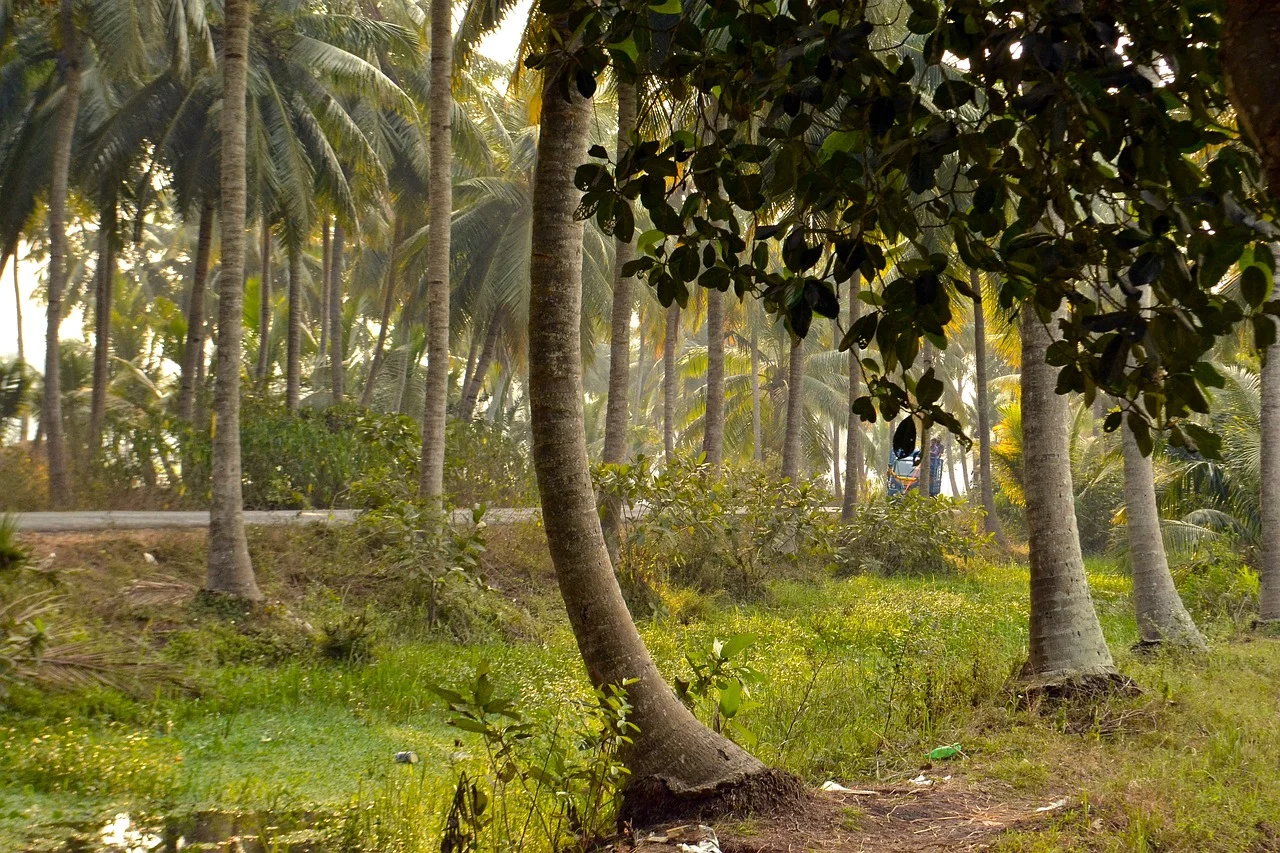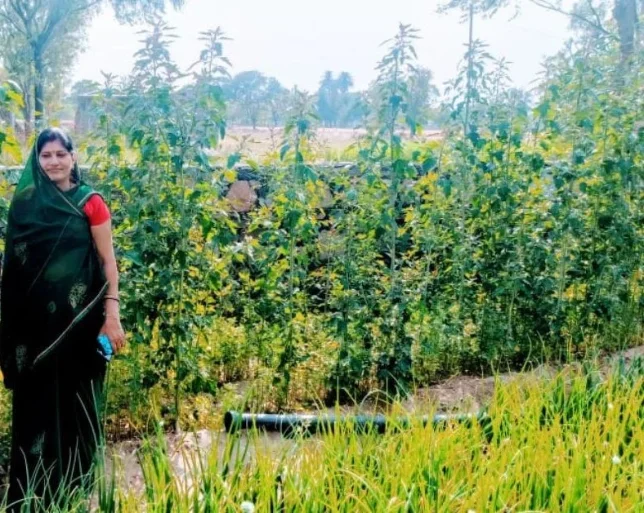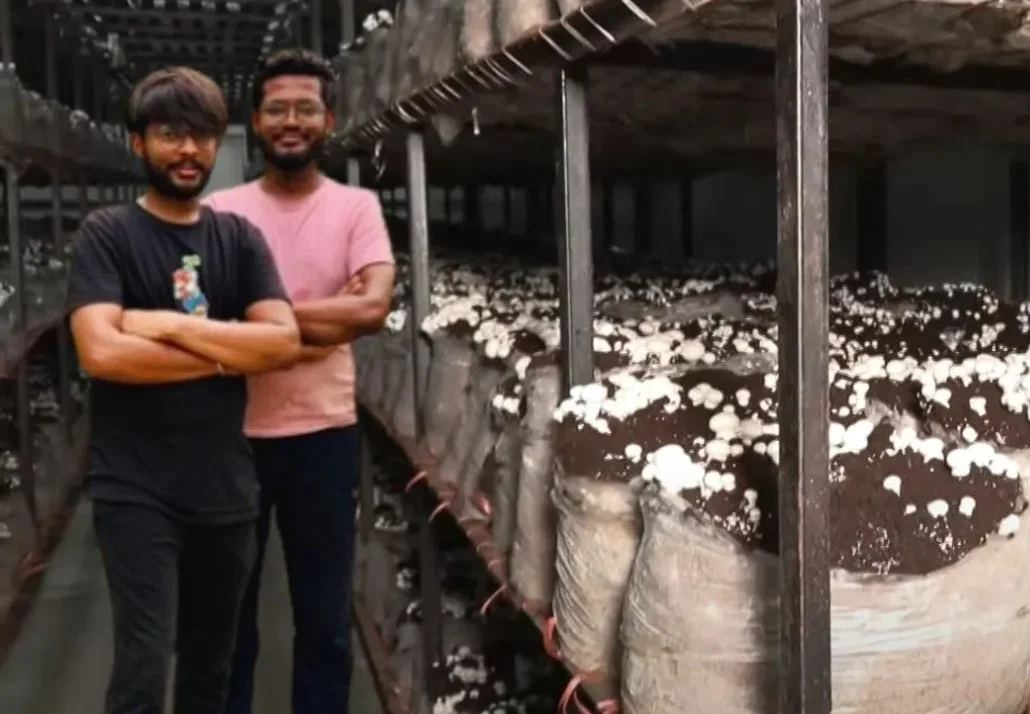When Shanker Meena was working on his MBA in Finance back in 2013, he couldn’t shake off his dream of starting his own business. Growing up in a farming family, he knew firsthand how unpredictable nature could be and the challenges it posed to crop yields. The uncertainty of income in agriculture bothered him.
“I wanted to find something that could provide a steady income – a business that wasn’t heavily reliant on nature. Even though I enrolled in an MBA program, my mind was always buzzing with business ideas,” recalls Shanker, who holds a degree in commerce.
After talking to numerous people and conducting research, he decided to venture into mushroom farming, attracted by its growing popularity. The increasing awareness of health benefits and the demand for nutritious, cholesterol-free food products were key factors driving the mushroom market in India.
The birth of a concept
“I didn’t limit myself to learning about mushroom cultivation from just one place. Since it involves a scientific process, I wanted to grasp every aspect of it,” explains Shanker, who underwent training at the ICAR-Directorate of Mushroom Research in Solan in early 2016. This institute focuses on researching the collection, conservation, utilization, and production of edible and medicinal mushrooms.

Following this, Shanker continued his training at the Haryana Agro Industries Corporation (HAIC) and later in Bengaluru. He acknowledges the support of his wife, Kanchan, saying, “She has been very supportive of my entrepreneurial efforts.”
“In January 2017, we started cultivating mushrooms on a trial basis right in our house in Jaipur. We got the seeds, or spawns, from Delhi and set up about 40 bags of oyster mushrooms,” recalls Shanker.
Also Read: Balakila Shivananda: Best Farmer Award Winner Thrives with Best Integrated Organic Farming
The outcomes were promising, and we used the initial harvest at home, sharing it with friends. “However, when it came to the next crop, we found that mushroom spawns were not readily available in Rajasthan. So, we realized that producing the seeds could be a more lucrative business opportunity than cultivating mushrooms,” he explains.
Mushroom spawn, or seed, is essentially the fungus cultivated on a grain-based medium such as wheat or bajra (pearl millet). Creating mushroom spawns involves using a laboratory equipped with precise temperature and moisture control.
“Our initial try at making 30 bags of seeds didn’t succeed due to contamination caused by hygiene issues. That’s when I decided to return to DMR Solan for additional training in spawn production,” Shanker adds.
A fresh start
In August 2017, he established a mushroom spawn lab right in the garage of his home in Jaipur. Setting up a lab like this involves having equipment such as a laminar airflow cabinet for a sterile working environment, vertical autoclaves (sterilizers), a seed germination chamber, incubators, and other necessary tools.
To kickstart this venture, Shanker secured a loan of Rs 9 lakh through the Pradhan Mantri MUDRA Yojana (PMMY), which supports micro-businesses with loans up to 10 lakh.
“I set up the machines in my garage and initiated the production of seeds under the Jeevan Mushroom brand.”
Word had already started spreading about the couple’s work through friends and social media, and people were eager to purchase their mushroom spawns. While Shanker concentrated on marketing and sales, his wife Kanchan took charge of the production side of things.

“We initially priced our spawns at Rs80 to Rs90 per kg, and as the quality of our seeds proved successful, the demand skyrocketed,” he shares.
Today, Jeevan Mushroom is a major supplier of Button, Oyster, Lion’s Mane, Paddy Straw, Shiitake, Ganoderma, Portobello, and various other mushroom varieties throughout India. They have also expanded their reach to international markets, exporting to Nepal, Bhutan, the UAE, and other countries.
The production cost of mushroom spawns or seeds is Rs70 per kg, and they are sold at Rs90 to Rs100 per kg. “In the fiscal year 2023, we achieved revenues of Rs75 lakh. With a new facility requiring an investment of Rs1 crore, we aim to close this fiscal year with over Rs1.4 crore in revenues,” he reports.
The monthly spawn production capacity at the new unit is approximately 80 tonnes per month. “Our current monthly revenue stands at around Rs13 lakh, and we anticipate it to increase at least fivefold with the new facility,” he adds.
With its well-equipped lab facilities, Jeevan Mushroom serves as a vital training center for mushroom spawn in Rajasthan. The center provides training and internships to agriculture students and individuals interested in venturing into mushroom entrepreneurship. Shanker and Kanchan have successfully trained numerous people to become mushroom entrepreneurs. Shanker emphasizes that the key to success in entrepreneurship, especially in mushroom or spawn cultivation, lies in learning from mistakes and persevering, as precision and hygiene are crucial at every step.
For spawn cultivation, a grain such as wheat, bajra, jowar, or maize is utilized as the foundation. “We opt for wheat. It’s initially boiled to enhance moisture content. The goal is to soften it for fungal culture growth. Subsequently, it’s dried to eliminate the outer moisture,” he explains.

To eliminate excess moisture, we introduce calcium sulfate (gypsum) and calcium carbonate to the boiled and dried grains.
Next, we package the treated grains in polybags made of 200-micron Polypropylene. Each bag is assigned a batch number for monitoring final results at the buyer’s facility. The polybag is equipped with a polypropylene ring, creating a bottle-like mouth. It is sealed with a cotton plug to allow aeration, crucial for the growth of the fungal culture.
“Afterward, we place them in an autoclave, which sterilizes the grains and other materials. The autoclave is maintained at a temperature of 125 degrees for 2 hours and then cooled down in a separate room. The bags are returned to room temperature (24 to 25 degrees Celsius) before inoculation,” he explains.

Optimal growth for microbes occurs at room temperature. “We let them sit for a day and then introduce the mother culture to the packets,” he explains. The mother culture is cultivated in test tubes, incubated at room temperature for 10 days until the fungal culture achieves full white growth, which is crucial for spawn preparation.
“For Button mushrooms, we import the mother culture from the Netherlands because this variety has a higher risk of commercial failure. However, for other varieties like Oyster, Shiitake, and Portobello, we cultivate the mother culture in our unit,” Shanker notes.
The multiplied mother culture is then transferred to sterilized packets containing grains. Approximately 20-25 grams of culture are added to 1 kg of wheat, and the packets are placed in an incubation room for 10-12 days. “After inoculation, it needs to be kept at a temperature of 24 degrees, a humidity level of 50 to 60, and carbon dioxide levels below 5,000 ppm. We closely monitor these parameters throughout the process,” he adds.
After 10 to 12 days, the wheat transforms into a white color, indicating the successful growth of the mushroom fungus. “At this point, it’s ready to be sent to any mushroom farm and remains viable for up to two months,” notes Shanker.

For sales within a 200-300 km radius, the spawns are packaged in simple polythene bags. Jeevan Mushroom employs a thermocol box with ice to store the cold spawn when shipping to maintain a cool temperature. This ensures the spawns stay fresh for 48 to 60 hours, making them suitable for transportation to destinations abroad.
“With a nearly tenfold increase in capacity at our new facility, we aim to expand our presence in both domestic and international markets,” expresses Shanker.









